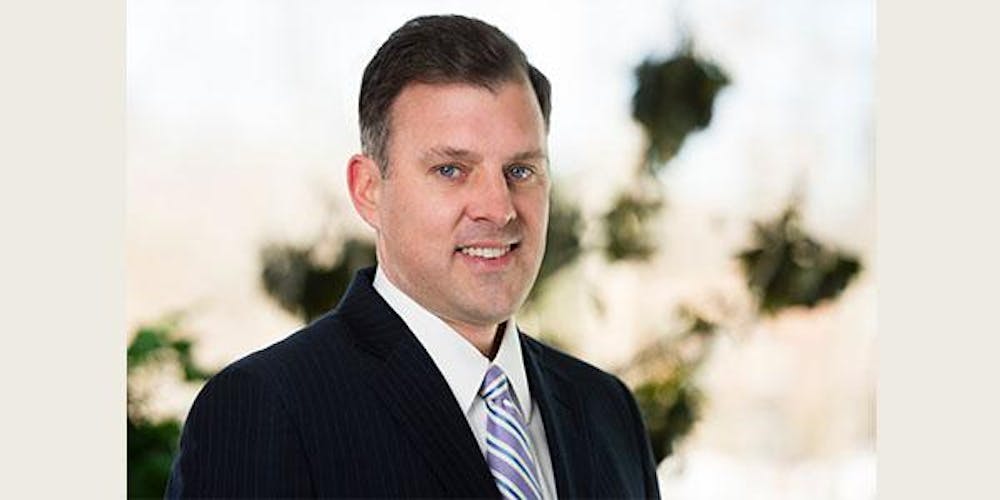Miami University’s new Center for Civics, Culture and Society will be established this fall – two years after the initial passage of Senate Bill 117 that legally required certain public Ohio universities to establish these types of centers.
This legislation allocated funding for Miami, University of Cincinnati, University of Toledo, Cleveland State University and the Ohio State University.
The center will focus on historical texts and ideas that have “shaped the American constitutional order and society” and “educate students by means of free, open and rigorous intellectual inquiry to seek the truth,” according to the bill.
The center will be housed as an “independent academic unit” within the College of Arts and Science and is being led by inaugural director Flagg Taylor, who was appointed by an academic council in March. The council will continue to stay on in an advisory role, overseeing the work Taylor does.
Miami has received $2 million in government funding, some of which will go toward 10 tenure-track faculty hires.
“The immediate task is to get to work on hiring a group of interdisciplinary faculty,” Taylor said. “That could be professors in political science or English or philosophy or classics … I want to hire a broad-based interdisciplinary faculty who are all excited about the prospect of teaching civic education, and so we’re going to get to work on that in the fall.”
The center already has three visiting faculty members who will begin teaching during the next academic year. These positions do not count toward the 10 tenured faculty members, as that hiring process will begin this fall.
In addition to financing faculty positions, state funding will also go to programming and events outside the classroom. One event already in consideration is a lecture about the 250th anniversary of the American Revolution in 2026.
“I’m thinking about having a panel on the choice for revolution,” Taylor said. “A panel that will kind of get people to think about what it would have been like to join the rebels’ cause. It sort of seems like an obvious choice now, but it wasn’t to the people who had to live in 1775 and 1776 to make that decision.”
The center will also collaborate alongside the Menard Family Center for Democracy — another civic-programming institution — on events such as Constitution Day this fall. John Forren, director of the Menard Center, has already begun working with Taylor.
“Any opportunity to enhance civics education at Miami and at the college level, I think can be a very positive thing,” Forren said. “The university has always supported diversity of thought and exploration of alternative points of view and intellectual diversity, so the more voices that are heard and are present on campus [the better].”
While the center will hold classes and programming on various socio-political topics, Taylor does not consider the center itself to be political.
Enjoy what you're reading?
Signup for our newsletter
“The adjective I would use [to describe the center] would be pre-partisan,” Taylor said. “I want people to kind of think about civic knowledge as something that needs to be gained no matter what your contemporary opinions or political affiliations are.”
Taylor also emphasized the interdisciplinary elements of the center that will incorporate perspectives from different fields.
“We’re not thinking about questions from the perspective of a political scientist or a historian or even a journalist,” Taylor said, “but we’re thinking about kind of ordinary political questions that will arise … as a citizen and a human being.”
As another civic education-focused faculty member, Forren echoed this when discussing the role universities play when teaching about these topics.
“It’s the role of colleges and universities to teach students how to think, not what to think,” Forren said. “And so anything we can do to expose people to multiple points of view and encourage critical thinking, I support.”
Student body President Danny Martin also agreed, emphasizing the importance of civic engagement among Miami students.
“I think it never hurts to be more civically engaged,” Martin said. “[Through centers like this,] we’re having those difficult conversations that we probably should be having more of as educated individuals, as college students and as future leaders going on.”
The center will have a student-first approach, with Taylor hoping to build a center that can be enjoyed by everyone.
“My goal is pretty simple: it’s just to create a really vibrant center of faculty and students that are all devoted to and passionate about the kind of intense and serious but joyful study of civic life,” Taylor said. “I just think the center, hopefully, is going to be a kind of place that students from lots of different interests and backgrounds can come to pursue these questions in a really serious and exciting way.”




